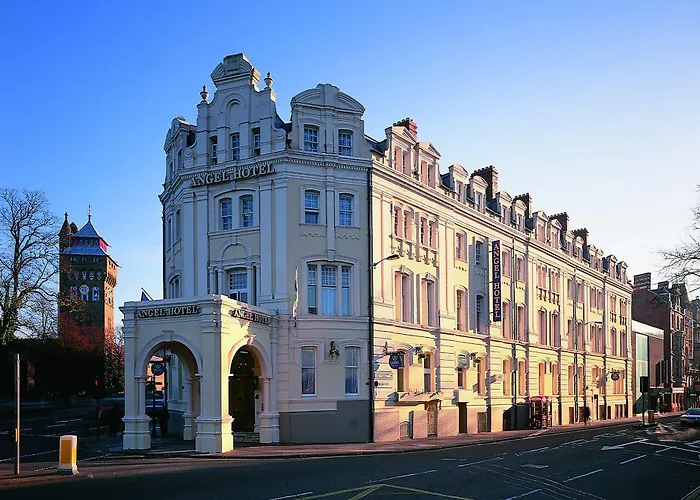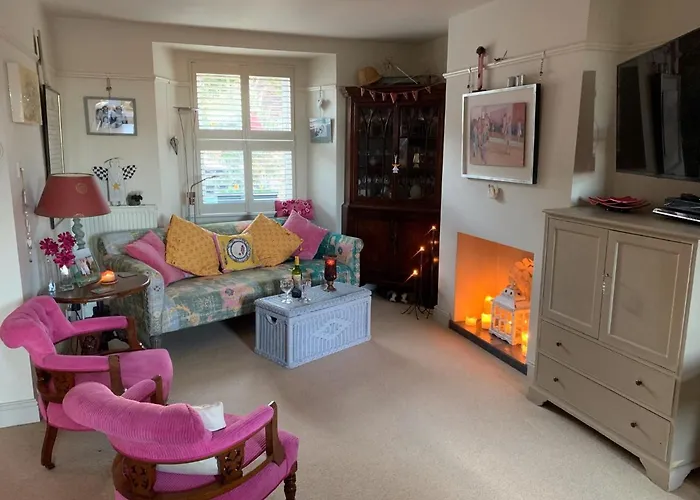
Ryan's Global Adventures: Exploring the World with SLVRC.org
Embark on a unique journey with Ryan as he combines his passion for world travel with the fascinating world of amateur radio through SLVRC.org. In this travel blog, we'll explore how Ryan seamlessly integrates his global adventures with the activities of the Saint Lawrence Valley Repeater Council (SLVRC), creating a harmonious synergy between exploration and connectivity.
Unveiling the Global Canvas Ryan, the intrepid explorer, invites readers to join him on a journey across diverse landscapes and cultures. From the bustling streets of Tokyo to the tranquil landscapes of New Zealand, each destination becomes a canvas for Ryan's experiences. With SLVRC.org as his digital hub, he shares his stories, connecting with enthusiasts worldwide who share a love for travel and amateur radio.
SLVRC.org - A Digital Haven for Connectivity SLVRC.org isn't just a domain; it's a digital haven where Ryan documents his travel adventures while fostering connections within the amateur radio community. This section explores how the website serves as a hub for enthusiasts to share insights, exchange travel tips, and engage in conversations that bridge geographical gaps.
From Ham Radio to Cultural Echoes Ryan delves into the unique intersection of amateur radio (Ham Radio) and cultural exploration. He explains how SLVRC.org facilitates connections with fellow radio enthusiasts across the globe, enhancing his travel experiences with local insights and insider knowledge. The exchange of cultural echoes becomes a testament to the power of connectivity through technology.
SLVRC.org Community Spotlights Within this section, Ryan shines a spotlight on the SLVRC.org community. Through interviews and features, readers get to know other enthusiasts who share their travel experiences and insights. SLVRC.org transforms into a platform not only for documenting Ryan's adventures but for creating a community of like-minded individuals passionate about both travel and amateur radio.


Discover the Ideal Stay: Best Hotels Near Dublin Airport

Find Your Ideal Stay at Hotels Near Leeds Bradford Airport

Explore Top Central London Hotels for a Memorable Stay

Explore Top Totnes Hotels: Your Ultimate Accommodation Guide in the Heart of Devon

Discover the Best Hotels Near Wembley Arena for Comfort and Convenience

Experience Comfort and Style at the Best Hotels Edinburgh Has to Offer

Best Hotels Sittingbourne: Comfort and Convenience on Your UK Trip

Discover the Finest Hotels in North London for a Memorable Stay

Discover Budget-Friendly Lodging - Best Cheap Hotels Near Edinburgh Airport

Top Hunstanton Hotels to Elevate Your Coastal Retreat

Find Your Ideal Stay: Top-Rated Hotels in Bristol City Centre with Parking

Discover the Best Hotels in Glasgow with Parking Amenities

Discover the Best Manchester Airport Parking Hotels for a Convenient Stay

Best Hotels at Aberdeen Airport for a Convenient Stay

Discover the Top Manchester Airport Terminal 1 Hotels with Parking for Your Next Trip

Discover the Top Hotels on Berners Street, London for an Unforgettable Stay

Hotels near Cambridge Theater in London: Your Perfect Stay in the Heart of the City

Hotels Near Merchant Adventurers Hall York: Your Guide to Accommodations in York

Discover the Benefits of Pay Later Hotels in London for Your Next Trip

Hotels near Leith Docks Edinburgh: Experience Comfort and Convenience

Discover the Best Cheap Hotels in Cardiff Area for Your Budget

Discover the Perfect Accommodations Near Blackpool Pleasure Beach

Discover the Best Hen Do Hotels in Benidorm for an Unforgettable Celebration

Hotels in Birmingham Near Bullring Shopping Centre - Top Choices and Benefits

Hotels Liverpool Road Manchester: Uncover the Perfect Accommodations

Hotels Close to Leeds Railway Station: The Perfect Accommodations for Easy Access and Comfort

Luxury Hotels in Peterborough - Experience Unparalleled Comfort and Elegance

Hotels near Bristol Cruise Terminal: Perfect Accommodations for Your Visit

Hotels Close to Bristol Zoo: The Ideal Accommodation for Your Bristol Visit

Discover Affordable Accommodations near Liverpool Street Station in Liverpool

Discover the Best Hotels Near the Midland Manchester in Manchester, United Kingdom

Affordable Accommodations near Liverpool Football Stadium: Your Guide to Cheap Hotels in Liverpool

Experience Comfort and Convenience at Manchester Hotels Close to Arena

Explore Cardiff Town Centre's Finest Hotels for an Unbeatable Experience

Hotels near Iveagh Gardens Dublin: Your Gateway to Relaxation and Adventure

Discover the Best Glasgow Airport Hotels with Trivago for a Convenient Stay

Best Boutique Hotels in New York: Making the Most of Your Stay

Discover the Finest Accommodations in Bath Spa City Centre

Discover the Best Stay, Park, and Fly Dublin Airport Hotels for a Stress-Free Travel Experience

Hotels Near the NEC Birmingham: Find the Perfect Accommodation for Your Stay

Top Secret Hotels Prague: Insider Tips and Unbeatable Deals Revealed

Discover the Best All Inclusive Hotels in Benidorm Centre for Your Spanish Getaway

Luxury Accommodations: Chepstow Hotels with Pool for Ultimate Comfort

Grimsby Hotels Cheap: Uncover Budget-friendly Accommodations for Your Stay

Dog-Friendly Oban Hotels: Where to Stay with Your Furry Friend

Find the Perfect Place to Stay near Livingston Outlet Hotels

Hotels in Nantwich Cheshire - Find Your Perfect Stay

Discover the Best Hotels in Worcester, England for a Memorable Stay

Stay in Comfort and Style at Castleton Hotels in the Peak District

Explore SoHo's Finest 4 Star Hotels in New York City

St Andrews Hotels Cheap: Find Affordable Accommodations for Your Stay

Explore the Finest Benalmadena Stag Hotels for an Unforgettable Experience

4 Star Hotels in Enniskillen: Unmatched Luxury and Comfort

Discover the Exquisite Accommodations at The Village Hotels Nottingham

Discover the Top Hotels Near Wembley Stadium for Your Stay in Wembley

Hotels near Leeds and Bradford Airport: Find the Perfect Accommodations for Your Stay

Hotels near Gulliver's Land Milton Keynes: Finding the Perfect Accommodation for Your Stay

Hotels on the Outskirts of York: Your Ideal Stay Near the City

Discover the Comfort and Charm of Caledonian Hotels Fort William

Discover the Unmatched Luxury of 5-star Hotels in Sevenoaks

Aberdeen AECC Hotels: The Ultimate Guide for Your Accommodation Needs

Discover the Best Accommodations in Colchester Town Centre

Discover the Top Hotels in Poole with Swimming Pool for Your Perfect Stay

Discover the Finest Family Hotels in Blackpool for an Unforgettable Stay

Discover the Finest Hotels in Shanklin, Isle of Wight

Skipton Hotels UK: Where to Stay in this Charming Town

Luxury Hotels in Norwich City Centre: Experience Unparalleled Opulence

Best Hotels in Benalmadena for Families: Find the Perfect Accommodation for Your Loved Ones

Accessible Hotels in Scarborough: Comfort and Convenience for All Travelers

Discover the Best Affordable Accommodations in Aberdeen City

Best Hotels in Durham City Centre: Experience Luxury and Comfort in the Heart of the City

Discover the Best Crewe Hotels in the UK for Your Stay

Unwind in Elegance: Explore the Top 5 Star Hotels in Harlow

